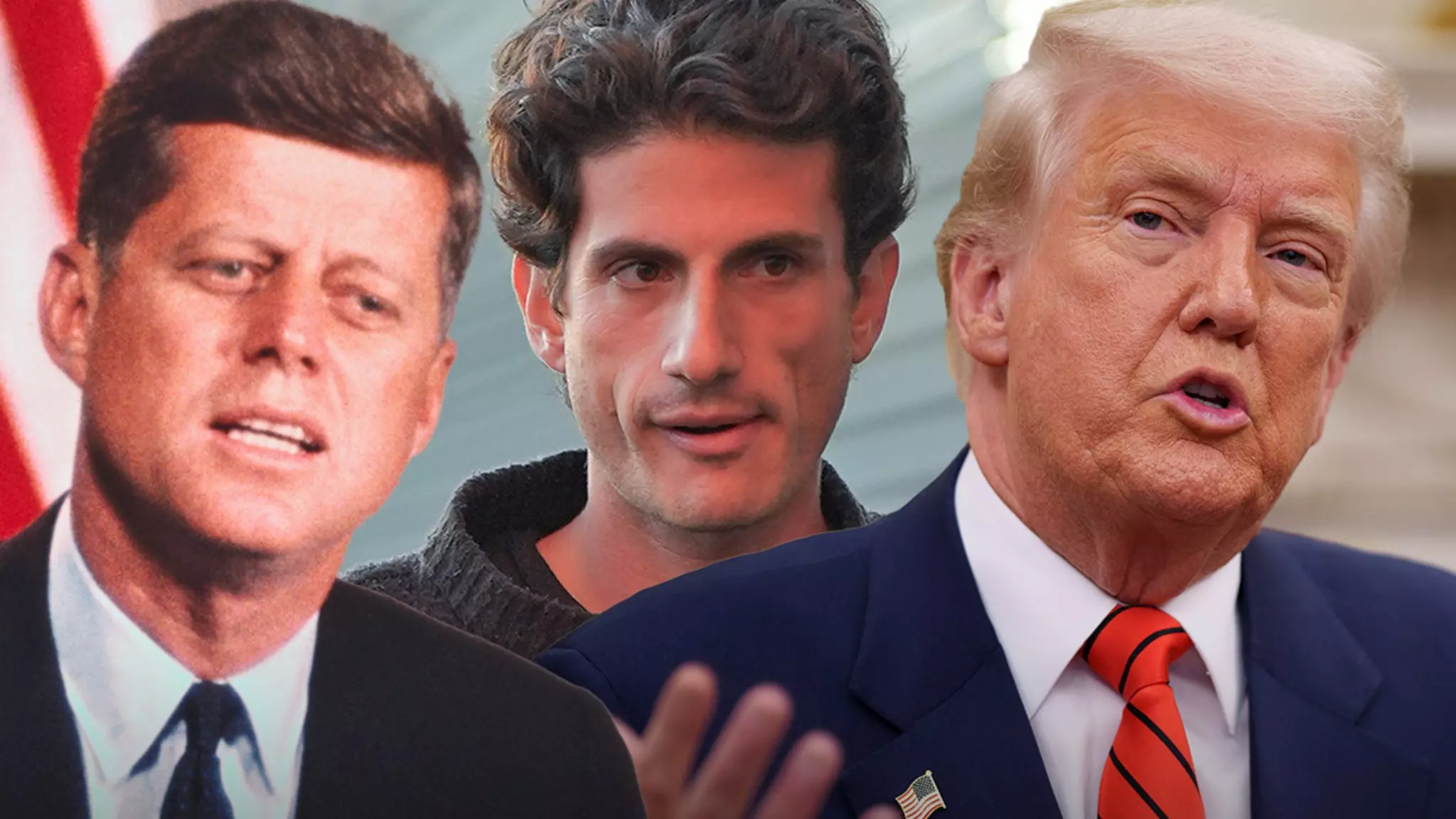Recent events surrounding the release of thousands of pages of assassination files related to former President John F. Kennedy have ignited a passionate response from his grandson, Jack Schlossberg. The Trump administration’s decision to unveil roughly 80,000 pages of documents without notifying the Kennedy family—except for Robert F. Kennedy Jr.—has left Schlossberg feeling blindsided, and understandably so. This situation raises troubling questions about transparency, family legacy, and the ethics of political maneuvering, particularly when it concerns the historical trauma surrounding JFK’s assassination.
Schlossberg articulated his frustration on social media, emphasizing that despite the shocking nature of the event for him, it wasn’t entirely unexpected given the political landscape. His claim that RFK Jr.—who now serves as Trump’s Secretary of Health and Human Services—was in the loop underscores a disconcerting relationship between the Kennedy legacy and contemporary politics. The perception that the handling of JFK’s archives is politicized makes one wonder if the reverence for the past can coexist with the machinations of modern governance.
The Significance Behind the Files
While a substantial volume of new data sounds impressive, initial analyses suggest that the contents may not reveal any shocking new insights. The public and researchers alike anticipated “smoking guns” that could shine a new light on JFK’s untimely demise, but the reality appears to disappoint those hoping for breakthrough revelations. Nonetheless, the public’s reaction to the files speaks volumes about our enduring fascination with assassination conspiracy theories. The sensationalism that surrounded JFK’s assassination has long lingered in the collective consciousness, continuing to fuel speculation about who truly was behind the tragic event.
Even with the release of the documents, the dark cloud of conspiracy persists. Many believe that Lee Harvey Oswald was merely a scapegoat and speculate about deeper, possibly sinister forces at play. The ongoing debates surrounding these theories reflect a broader societal need to find meaning in chaos and uncertainty, especially regarding foundational events in American history.
Condemning the Media: A Misguided Outburst?
In a subsequent post, Schlossberg turned his ire towards media outlets like CNN, accusing them of failing to treat this situation with the seriousness it deserves. He expressed visible frustration during a broadcast, calling it “stupid” amid a backdrop of significant news stories vying for attention. This criticism raises important points about media responsibility and the balancing act between captivating audiences and providing substantive journalism. It’s crucial to understand that the media landscape thrives on sensational stories, and in a 24-hour news cycle, the emphasis often shifts away from the nuances that these historical documents should preferably hold.
However, the real question arises: is Schlossberg’s condemnation of the media a legitimate call for responsible reporting, or is it an expression of impatience stemming from an overreliance on sensational coverage for his family’s legacy? There is a delicate balance between upholding the past and engaging in the competitive race for views and clicks. His passionate outburst underlines the struggle many families face when public history clashes with personal narrative.
In the whirlwind of political intrigue and media coverage, Schlossberg’s heartfelt response encapsulates a blend of anger and a longing for reverence toward a remembered legacy. His voice reminds us of the complexities involved in navigating family history within the turbulent realm of contemporary politics.

